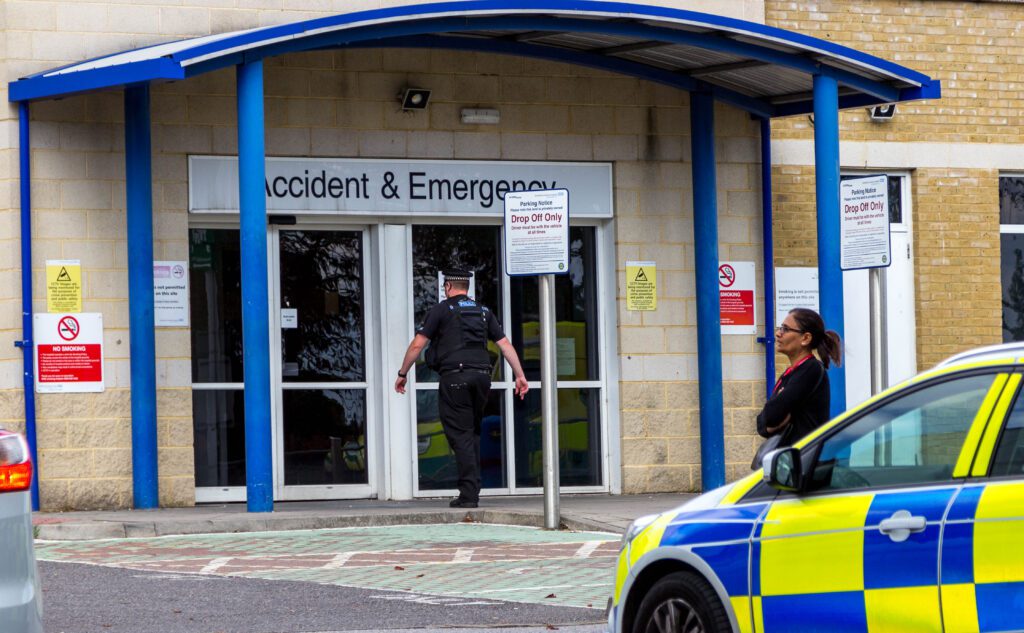The UK’s mental health system is approaching a moment of reckoning.
As the Mental Health Bill moves towards Royal Assent, the promise of a more humane, person-centred approach to crisis care feels closer than ever. Yet those working across health, social care, policing, and local government know that legislation alone cannot deliver meaningful change.
Over the past year, Thalamos has spoken with hundreds of professionals involved in mental health crisis response. Their insights reveal a system full of good intent but trapped by its own complexity – stretched, fragmented, and reliant on human resilience to make up for structural flaws.
“After nine at night, there’s no crisis team. We do what we can, but people end up waiting in the wrong place for too long.”
If the Mental Health Bill is to mark genuine reform rather than another missed opportunity, three realities must be confronted: the challenges undermining safety, the gaps between policy and practice, and the connected future professionals are calling for.
“We need one version of the truth. Everyone has their own spreadsheet, their own times, their own story.”
The Challenges: Complexity Without Co-ordination
Crisis care is the ultimate test of public service co-ordination. In any given incident, acute care, mental health services, local authorities, police, and ambulance teams must all act quickly, lawfully, and compassionately. Yet accountability remains diffuse.
“The forms are less of a problem than the gaps between them.”
Police describe arriving at emergency departments to hand over patients detained under Section 136 of the Mental Health Act, only to wait for hours. Clinicians cite confusion over when the detention ‘clock’ starts and who is responsible for recording it. Administrators struggle to reconcile handwritten notes, emails, and phone calls into coherent records after the fact.
This is not about effort, it is about design. Crisis care depends on goodwill rather than structure, with success varying by local relationships rather than shared systems.
A workforce already at its limits compounds the risk. Section 12 approved doctors and approved mental health professionals who can carry out certain legal duties related to the assessment and detention of people with mental disorders in England and Wales are in short supply, especially overnight. This is creating a fragile safety net where lawful and timely assessments depend on who happens to be available.
After-hours gaps make this worse. As one professional put it, “After nine o’clock at night, the system shrinks.” Crisis teams stand down, transport options disappear, and people in acute distress wait in police cars or hospital corridors until morning – each delay eroding trust and increasing risk.
“It isn’t about blaming anyone. It’s about making the process safe enough so that we can all sleep at night.”
The Gaps: Ambition Running Ahead of Infrastructure
The Bill aims to modernise care and strengthen patient rights through measures like Advance Choice Documents and ending the detention of people with learning disabilities and autism, under Section 3. Yet many warn that reform without readiness could worsen existing pressures.
A central problem is data. Agencies hold fragments of information about the same event, but these fragments rarely connect. Health systems, police, and local authorities each tell a partial story – leaving no single version of the truth to show where delays or failures occur.
Funding is similarly fragmented. Budgets are split across health, policing, and social care, each facing annual uncertainty. Short-term grants and pilot projects abound, but sustainable joint commissioning is rare. Professionals often spend as much time navigating funding rules as improving services.
An ethical gap also persists between principle and practice. All involved value the least restrictive option, yet when community alternatives are unavailable, detention becomes the only path left. As one practitioner admitted, “Sometimes you know it’s not the right call, but it’s the only call left.”
“We all want to do the right thing, but the system makes it too easy to get lost in the gaps.”
Without addressing these structural weaknesses, even the most progressive legislation risks collapsing into compliance rather than compassion.
The Future: Connection as a Condition for Change
Despite the strain, there is quiet optimism. Many described how relatively small changes – better communication, shared visibility, consistent recording – can transform outcomes. When partners see the same information at the same time, disputes reduce, co-ordination improves, and focus returns to patient care.
Some regions are already moving in this direction. In London, mental health professionals now complete and share statutory forms digitally through eMHA by Thalamos, creating an auditable record of every detention, assessment, and discharge. In Dorset, live data helps leaders pinpoint where delays occur and why. Police forces, including the British Transport Police, are using MHForms by Thalamos to log Section 136 handovers into the care of health professionals for assessment and support in real time – turning anecdotal evidence into actionable insight.
“There’s no shortage of compassion – just a shortage of time, people, and joined-up thinking.”
These examples are not about using technology for its own sake. They show what happens when information flows match the speed and sensitivity of crisis response, and how data itself can become a form of care – ensuring decisions are lawful, efficient, and humane.
Readiness for Reform
The Mental Health Bill offers both opportunity and a deadline. It cannot solve workforce shortages or rewrite funding models, but it demands stronger rights, greater transparency, and genuine accountability.
To meet those expectations, the infrastructure beneath must be fit for purpose. Professionals are not asking for new mandates, but for clarity, interoperability, and long-term investment in tools that make collaboration possible.

Regional partnerships are beginning to align police and NHS data to improve oversight of crisis pathways. In some areas, this intelligence is already shaping staffing at places of safety, reducing diversions to emergency departments, and saving money for integrated care boards.
This hints at a future where success is measured not by detentions completed, but by crises avoided – where accountability feels collective, not confrontational.
“If we could see what each other see, half of the tension would disappear overnight.”
A System Ready to Act
Across every conversation, one message is clear: the system knows what must change. Professionals are not waiting for permission – they need structure and support to act. The cost of inaction is measured not only in budgets and bed days, but in trust between agencies, staff, patients, and communities.
The coming year will determine whether the Mental Health Bill delivers real reform or another layer of bureaucracy. Its success will depend on whether system leaders choose to invest in the connective tissue that holds crisis care together: shared information, shared accountability, and shared purpose.
The will exists – what is missing is alignment. With reform imminent, the window for action is closing fast.
Because in mental health crisis care, connection is not a luxury – it is the difference between a system that reacts, and one that heals.
About Thalamos
Thalamos partners with NHS mental health trusts, independent providers, local authorities, and police forces to digitise and streamline Mental Health Act processes. Its technology supports professionals to deliver swifter, simpler, and safer care during mental health crises.
Find out more: discover how Thalamos’ digital tools have driven operational and strategic benefits for mental health trusts, independent providers, and police forces.





